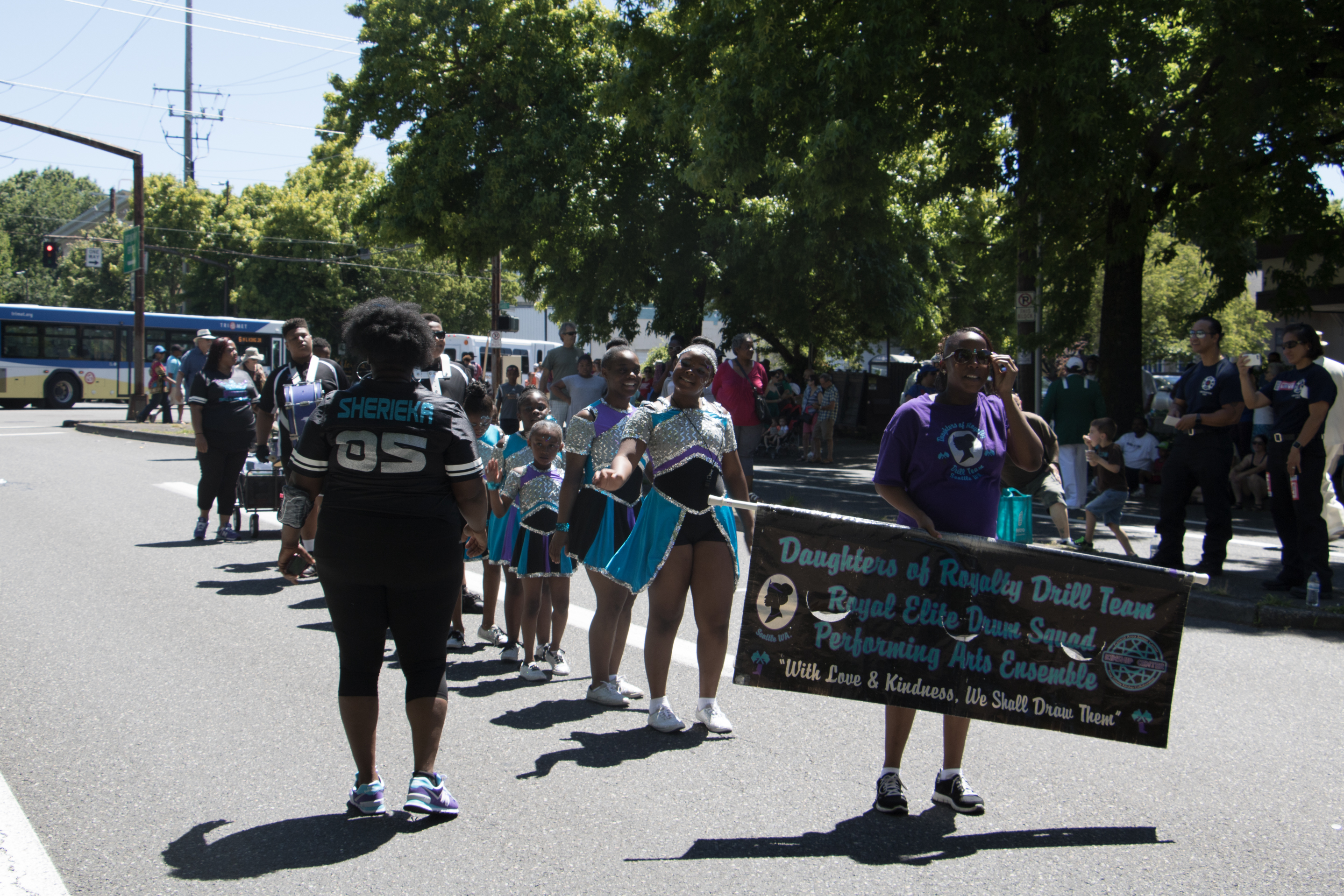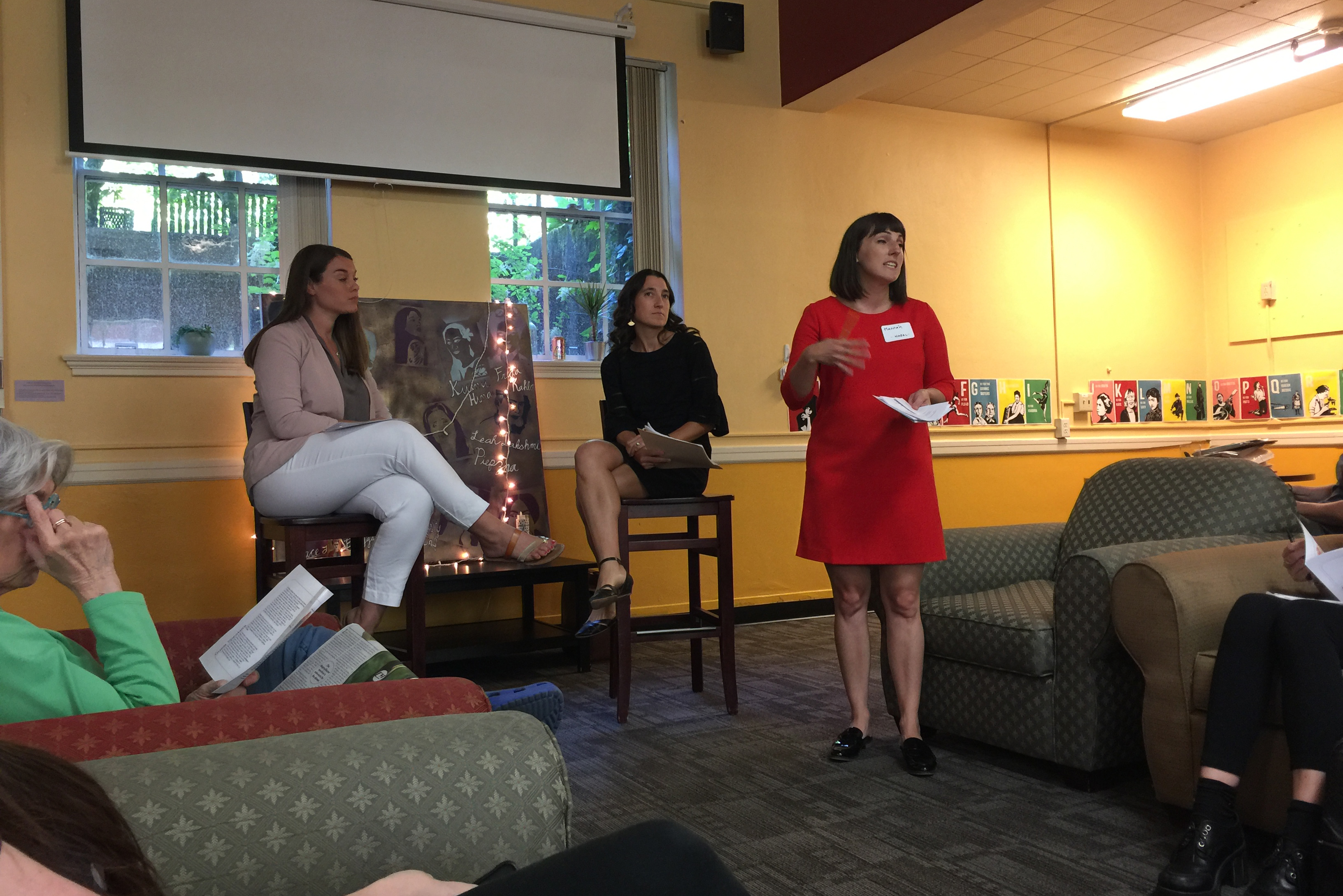Portland’s annual Good in the Hood Festival celebrated its 25th year as a northeast community staple at Lillie Albina Park June 23–25 despite recent threats against event organizer Shawn Penney. Thanks to the support and protection of the Portland Police Bureau and local citizen advocate groups, attendees came together to socialize and kick off the summer with a weekend of music and food.
An article from the Oregonian asserted that in the weeks leading up to the event, Penney received multiple racist threats against him and festival attendees.
In response, festival organizers worked alongside the PPB to move forward with the event in a way that would ensure a safe environment for attendees. The Guardian Angels also made an appearance to the festival in order to provide extra security for attendees and organizers.
The Guardian Angels are a citizen based group that patrols cities to keep them safe from crime and wanted to help keep the festival safe in addition to celebrating the community they have a long history of being a part of.
“Well, we wanna patrol,” Lisa Campos of the Guardian Angels said. “Obviously, we heard about the threats against this festival, and so we are gonna show support and offer our assistance and volunteer, check the perimeter, make sure everyone’s safe like we always do. But we’re definitely gonna show our support for this event…Most of our chapter, back in the ’80s, was on 15th and Alberta, so this is my community. So I would always support whatever this community does.”
The Portland chapter of the Black Panthers was also present providing perimeter security. Some attendees were seen wearing “I am Shawn Penney” apparel to show solidarity with Penney.
In addition to the large police presence at the festival, event organizers decided to gate the festival’s perimeters with a single entrance and exit. “I get it, after the threats, one way in, one way out, so the opportunity is less for violence,” Campos said.
An annual reunion
Tomasena Green has been involved with Good in the Hood for 20 years. Green remembers growing up and having a father who was very active in the community and hopes her children and grandchildren will continue to be involved for years to come.
“This is the most fabulous community event for the inner city that gets people out,” Green said. “I mean, when we come here, we’re seeing everybody—old people we haven’t seen in a long time, childhood friends—we’re seeing everybody. I would love another 25 years.”
Green pointed out different locations in the neighborhood where she used to live and even the slopes of grass she played on as a child.
While Green’s hope to reunite some of her childcare business colleagues to march in the festival’s parade fell through, she told the Vanguard that she is still excited to be at the festival.
“There was some little ugly stuff goin’ on in the news, but you can plainly see [referencing the large number of attendees enjoying themselves], and they’ll be even more people because the lines are long, and there’ll be even more people comin’ up in here,” Green said. “You can’t be afraid, you have to be a part of this. This is our community. You can’t just stop, and don’t be doin’ nothin.’”
“We gotta still make our face known and let it be heard that we still wanna be here,” Green continued. “We’re not trying to take over nothin’, we just wanna be where we were raised up at, where our folks were raised up at, this is where we wanna be. I just love it here, I’m an Oregonian, been here since ’59, and I plan on stayin’ here. I don’t plan on goin’ nowhere.”
Another attendee echoed Green’s thoughts about the reuniting aspect of the festival. Terrance L. Xavier Burton is a local business owner, educator and mentor in the area and appreciates how GITH highlights the positive community culture and talented people who make that possible.
“For the last 15 to 20 years that I’ve been around in the community, this is our center place, this is where we come together,” Burton asserted. “It’s like a family reunion. With Good in the Hood, it’s a positive thing to show the rest of everybody outside of the black community that things are good in our hood. We have businesses, education. We have a lot to offer, not just our community, but the whole community abroad. So what this does is bring the whole human family together.”
While the festival is only one weekend a year, Burton advocates that, like GITH, hip-hop culture is a productive and uniting force that exists year-round to bring people together.
“When you think about this generation right now, what is our common thing we have in common?” Burton asked. “That’s the hip-hop culture. With the hip-hop culture, we have no color barrier, you could be anything! You could be the rocker like Beastie Boys cut man rockin’ or you could be the Slim Shady. It doesn’t matter; we still accept you in hip hop culture because it’s a culture thing. We’re all in it together.”
Community outreach
In addition to a parade, musical acts, and a basketball tournament, GITH also featured an “Information Village” with representatives from many organizations passing out information and discussing their respective groups’ purposes. Present organizations included the Urban League of Portland, the National Association of Black Veterans, and even the Church of Scientology who offered “free stress tests.” Trimet also participated by providing the event with a cooling center to help attendees get through the weekend’s heat wave.
Erious Johnson’s wife is the Urban League of Portland’s CEO and president. In addition to supporting her, being present for her safety and simply enjoying himself, Johnson came out to GITH to present his experience as director of civil rights for the attorney general within the state of Oregon’s Department of Justice.
Part of Johnson’s job is outreach and GITH allows him to educate community organizations about his office’s advocacy services in protecting the people’s civil rights.
Part of Johnson’s perspective on civil rights reform is that if you see a problem you want to change, you should challenge it through litigation. Johnson spoke briefly with the Vanguard about Oregon’s new nonbinary driver’s license option and the struggle for transgender rights.
“We have Brown V. Board because somebody got creative, so let’s be creative now that we’re facing these new things,” Johnson proposed. “I tell people, transgender students with the bathrooms, I’m like ‘now we’re back to bathrooms?’ Tellin’ who can go where, we did this 30 years ago, 40 years ago. It’s the same thing: the parties have changed, but it’s the same concept.”
More information on Good in the Hood can be found at goodinthehood.org.






